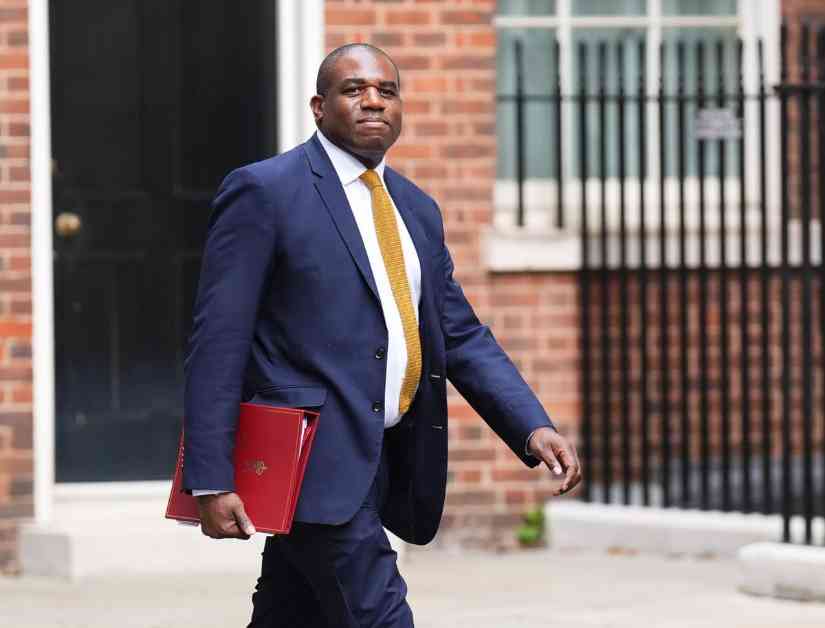The UK Government has taken the decision to suspend around 30 of its 350 arms export licenses to Israel due to concerns over the potential breach of international humanitarian law. This move comes amid growing scrutiny of Israel’s treatment of Palestinian detainees and the supply of aid to Gaza.
Background of the Decision
Foreign Secretary David Lammy announced the suspension of these export licenses, citing a “clear risk” that they could be used to facilitate serious violations of international humanitarian law. While acknowledging Israel’s right to defend itself, Lammy expressed dissatisfaction with the responses he received from the Israeli government regarding his concerns.
Lammy emphasized that the decision to suspend these licenses was not taken lightly and was based on a thorough review conducted by the UK government. He highlighted the ongoing loss of civilian life, destruction of infrastructure, and suffering in Gaza as key factors influencing the decision.
Political Response and Criticisms
The decision to suspend arms exports to Israel has sparked mixed reactions from political figures in the UK. While the Conservative government initially resisted calls to halt arms sales to Israel, the shadow foreign secretary Andrew Mitchell did not oppose the decision when it was announced in the House of Commons.
However, some Tory MPs criticized the move, with Robert Jenrick labeling it as “shameful gesture politics” and expressing concern that it was designed to appease the hard left. The DUP’s Sammy Wilson also voiced his opposition, suggesting that the decision would only benefit terrorists in Hamas.
On the other hand, Liberal Democrat foreign affairs spokesperson Layla Moran welcomed the government’s decision, stating that it should have been taken sooner. International human rights groups, such as Amnesty International and Oxfam GB, questioned the government’s actions, suggesting that the suspension of only 30 licenses out of 350 was insufficient to address the alleged violations of international humanitarian law by Israel.
Impact of the Suspension
The suspension of arms export licenses to Israel raises questions about the UK’s role in regulating arms sales to countries with questionable human rights records. By taking this step, the UK government is signaling its commitment to upholding international humanitarian law and holding countries like Israel accountable for their actions.
While the suspension of 30 licenses may not have a significant immediate impact on Israel’s military capabilities, it sends a strong message about the UK’s stance on human rights abuses. The decision also highlights the importance of transparency and accountability in the arms trade, urging governments to consider the ethical implications of their arms exports.
In light of the suspension, there may be a shift in the UK’s approach to arms sales to countries involved in conflicts or human rights violations. This move could pave the way for more stringent regulations and oversight of arms exports, ensuring that weapons are not used to perpetuate violence or violate international law.
Overall, the suspension of arms export licenses to Israel represents a significant step towards promoting accountability and ethical practices in the arms trade. It underscores the UK government’s commitment to upholding international humanitarian law and protecting civilians in conflict-affected regions like Gaza.












